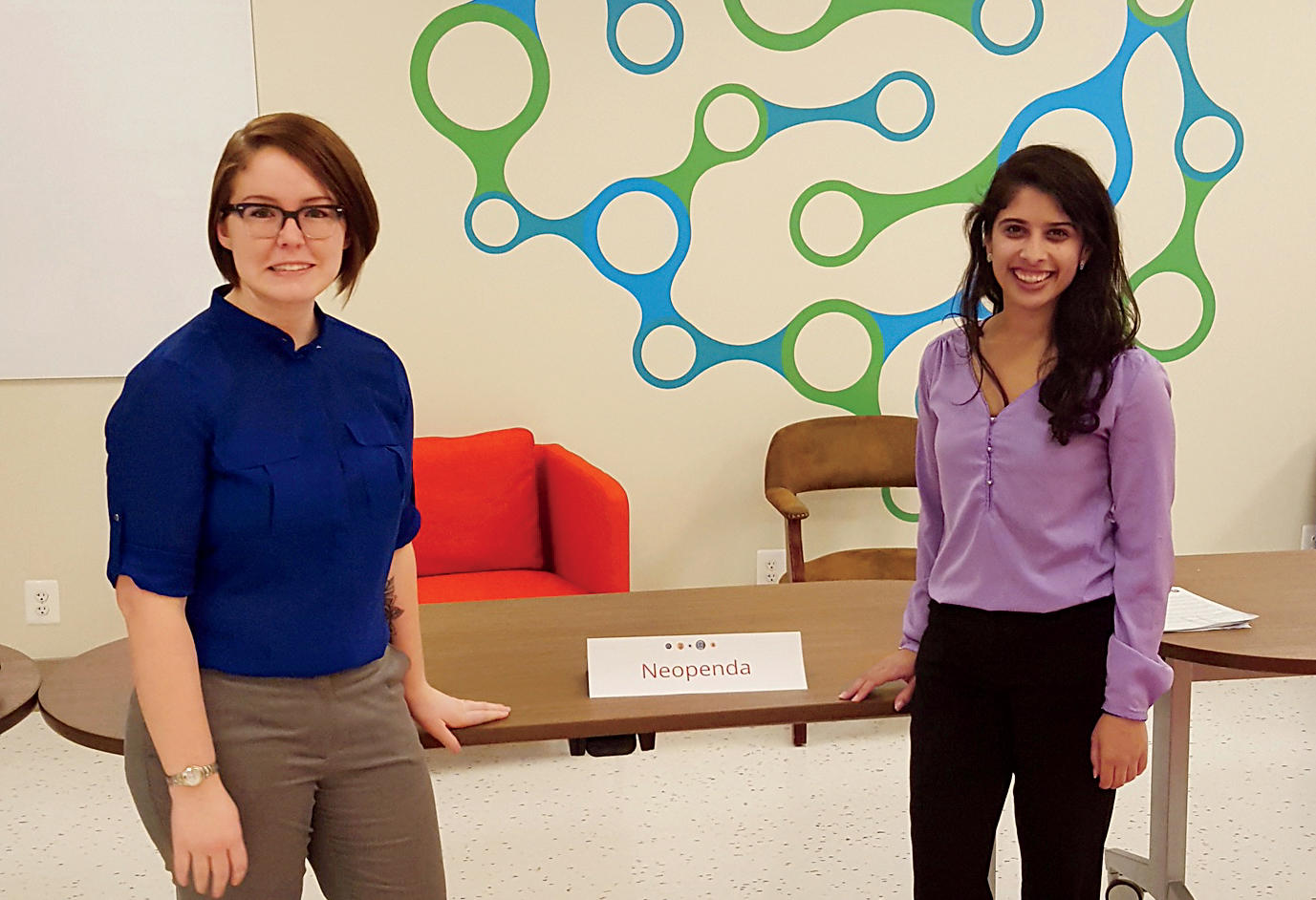When Sona Shah ’16SEAS and Teresa Cauvel ’16SEAS entered Columbia’s master’s program in biomedical engineering, in 2014, the infant mortality rate in Uganda was approximately thirty-nine per one thousand births. (The US rate, by contrast, is about six per thousand.) It was not surprising, then, that of the pressing global-health challenges identified in their biodesign class, newborn mortality was near the top.
Within two years, Shah and Cauvel would respond to that particular challenge with Neopenda, a startup that has created a wearable monitor that can measure a newborn’s vital signs and help more of those at-risk babies survive.
“What we found is that hospitals in developing countries are so under-staffed and ill-equipped that a single nurse can take care of twenty, thirty, even fifty babies at the same time,” says Shah.
The low-powered device, which is integrated into a hat, sends vital signs wirelessly to a tablet computer in a newborn unit, allowing nurses and doctors to monitor up to twenty-four babies at once and to quickly figure out which ones need help.
“What excites me the most is that it’s a pretty simple solution to a huge problem,” says Cauvel. “The basic technology has been around for a long time, but we reengineered it for this application.”
Neopenda took off when Shah and Cauvel won third place in the global technology category at the Columbia Venture Competition, a university-wide entrepreneurship contest. They spent their $10,000 prize on a fact-finding trip to Uganda, where they are focusing their pilot studies. Then, in the fall of 2015, Shah and Cauvel participated in a five-month startup accelerator program, which helps entrepreneurs write a business plan and develop their technology (it also comes with $50,000 in seed money).
Earlier this year, Shah and Cauvel launched a Kickstarter campaign for Neopenda, raising an additional $41,000. They also won $100,000 and first place in the Cisco Internet of Everything Innovation Challenge and the $300,000 top prize in the Vodafone Wireless Innovation Project. They will use some of that money to fund their first studies on newborns: one at Columbia University Medical Center’s Morgan Stanley Children’s Hospital in New York, and one at a private hospital in Uganda.
Next on the to-do list: perfecting the industrial design by making the monitor smaller, and finding a manufacturing partner. Shah and Cauvel hope to start selling the devices to hospitals in Uganda, at a projected cost of fifty dollars each, by early 2018. And the tech entrepreneurs are determined to expand Neopenda’s reach to other countries where infants are at risk. “We feel like babies’ lives are in our hands,” says Shah.



